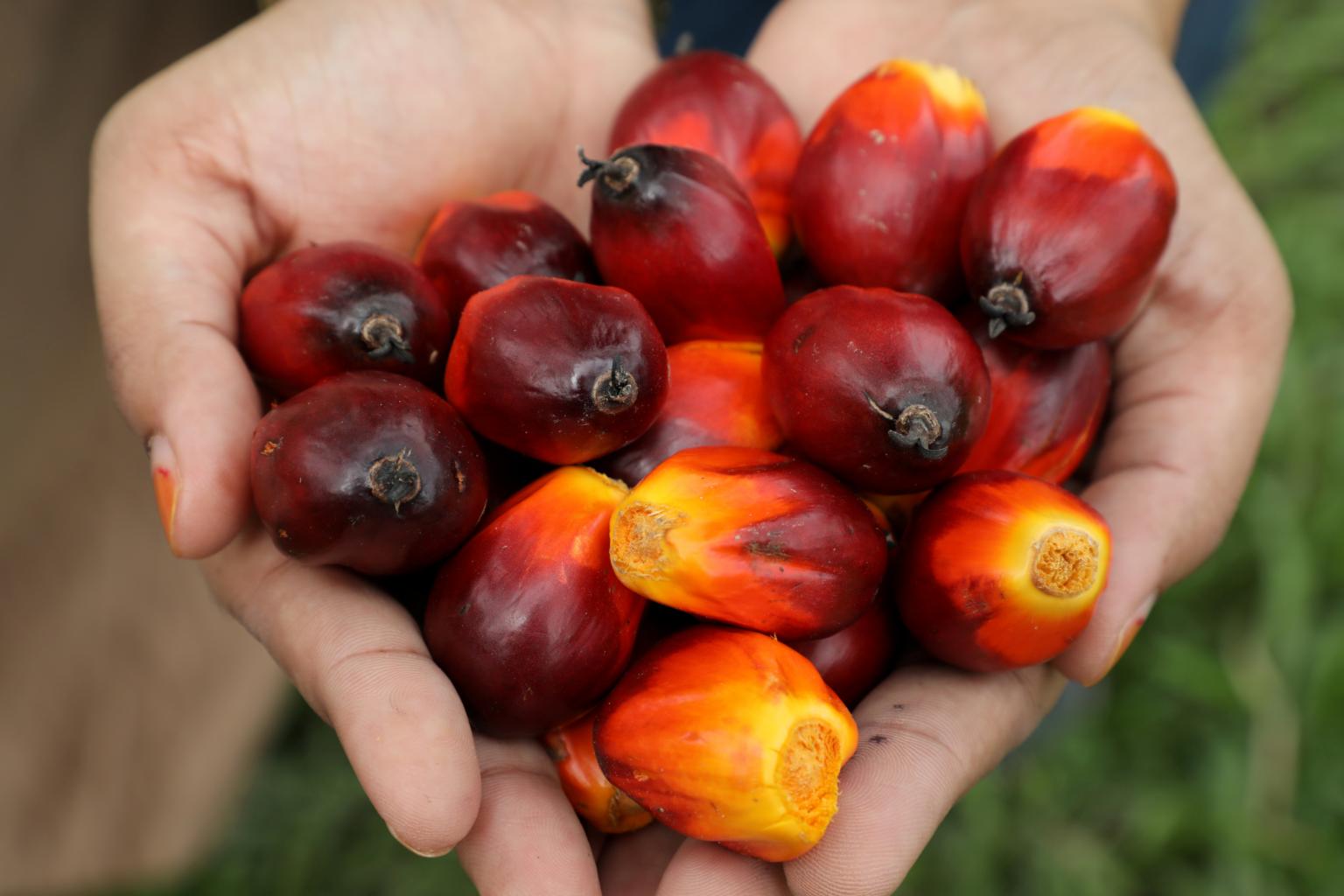Planters ordered to destroy oil palm trees as Sri Lanka joins boycott
Sign up now: Get ST's newsletters delivered to your inbox

Sri Lanka has around 11,000 hectares of palm plantations.
PHOTO: REUTERS
Follow topic:
COLOMBO (BLOOMBERG) - Palm oil suffered another blow as Sri Lanka banned imports of the world's most-consumed cooking oil and told planters to get rid of all the tropical trees in the country.
The island nation joined some other countries in bashing palm oil.
The US has stopped inbound shipments from some top producers in Malaysia on allegations of forced labour in the second-biggest grower, while the EU plans to phase out palm-based biofuels by classifying the commodity from large plantations as unsustainable.
Sri Lanka's President Gotabaya Rajapaksa ordered companies and other entities growing oil palm to remove the trees in a phased manner.
They have been asked to uproot 10 per cent of the trees each year and replace the fields with rubber or other environment-friendly crops, according to an official statement late on Monday (April 5).
"Palm oil imports don't help their cash crops, while oil palm plantations could lead to deforestation in the country," Mr said Gnanasekar Thiagarajan, head of trading and hedging strategies at Kaleesuwari Intercontinental.
"Sri Lanka is a top producer of coconut oil and palm oil could pose a threat to that sector," he said, adding the nation annually buys 200,000 tonnes to 250,000 tonnes of palm oil.
Sri Lanka's Director-General of Customs has been advised to refrain from clearing palm oil cargoes, the statement said.
At the same time, the cultivation of oil palm will be completely banned, it added.
"The members of the World Trade Organisation cannot ban imports without proper justifications and the latest move could technically be challenged," said Mr Sathia Varqa, owner of Palm Oil Analytics in Singapore.
"A temporary ban is fine, but not a permanent ban as non-discrimination is the basic principle of the WTO."
Mr Keheliya Rambukwella, Sri Lanka's Cabinet spokesman, told reporters on Tuesday that the government may review the latest order.
The country has around 11,000 hectares of palm plantations, just over 1 per cent of the total area planted with tea, rubber and coconut, CAL Research said in a note.

